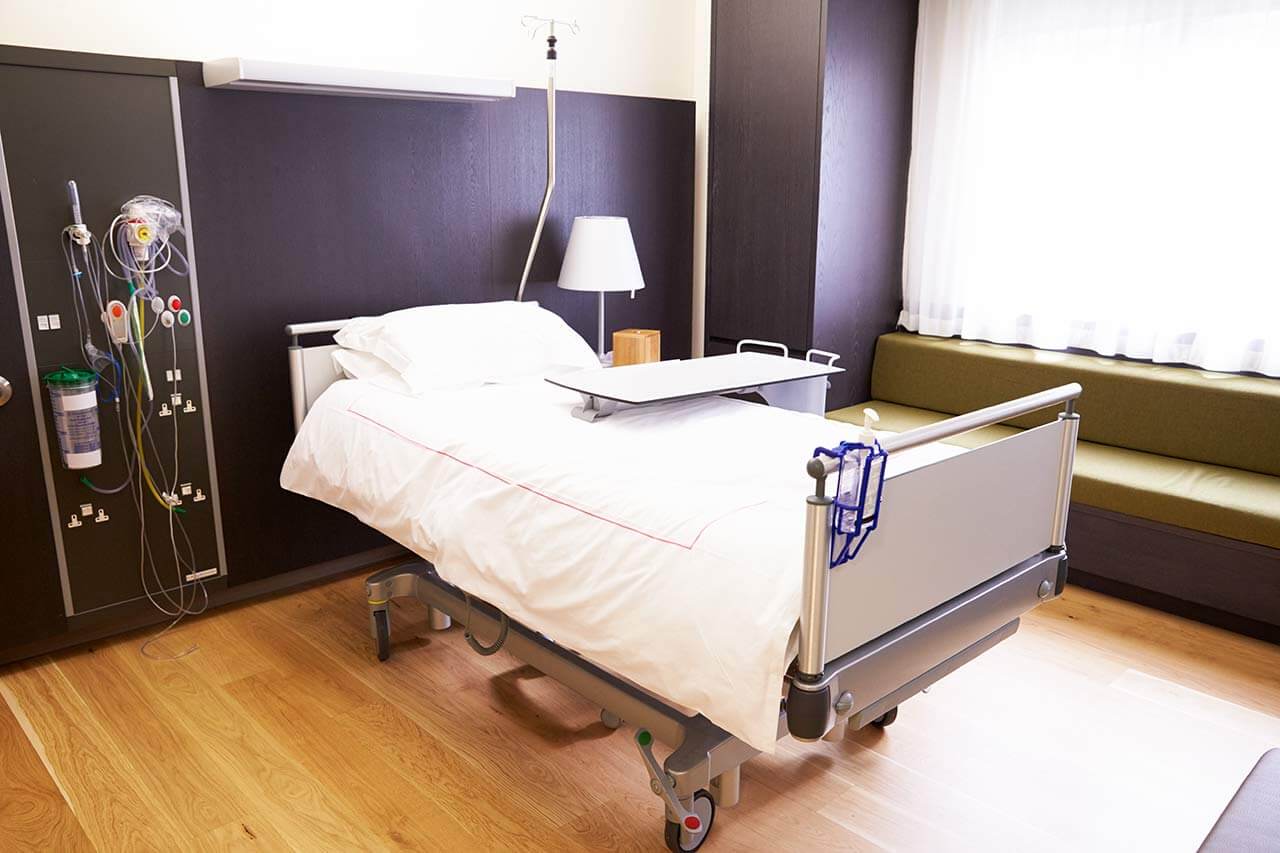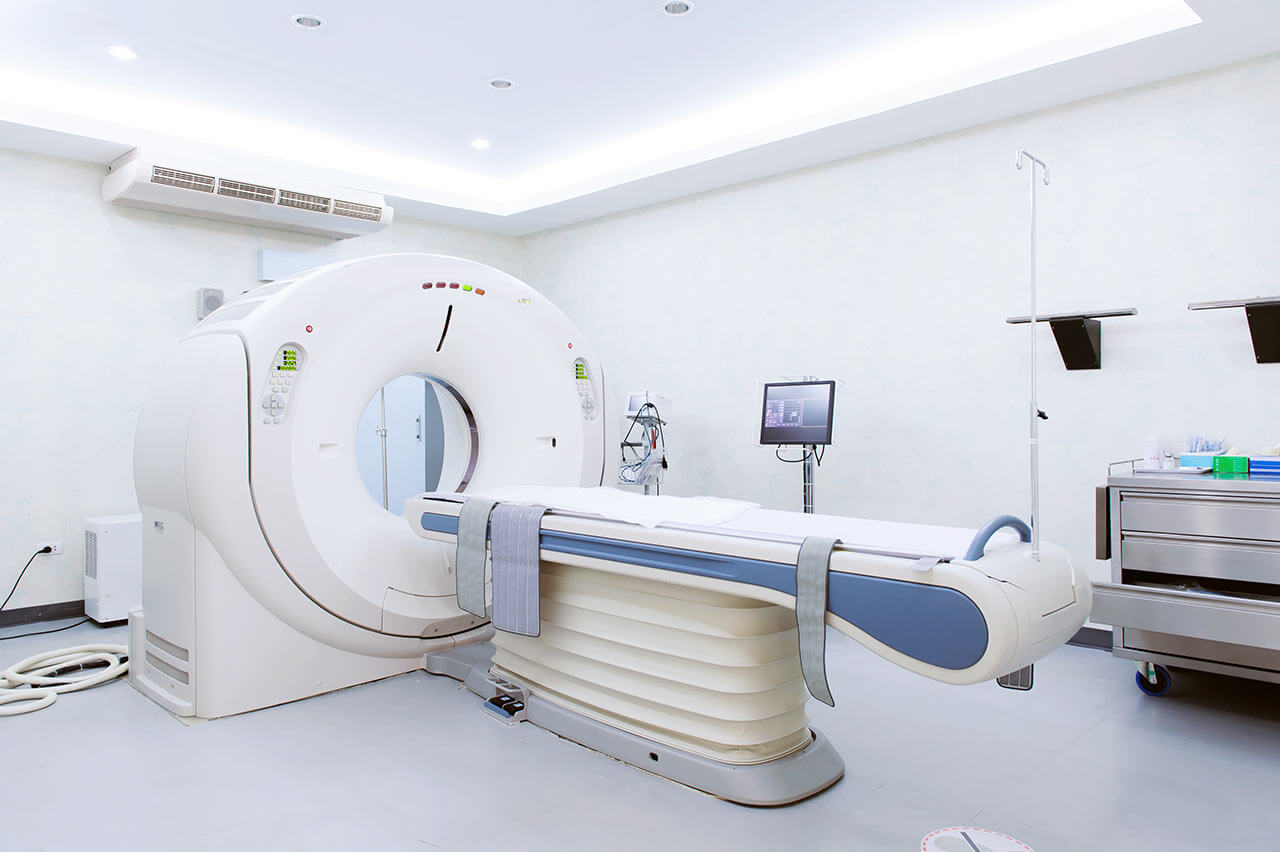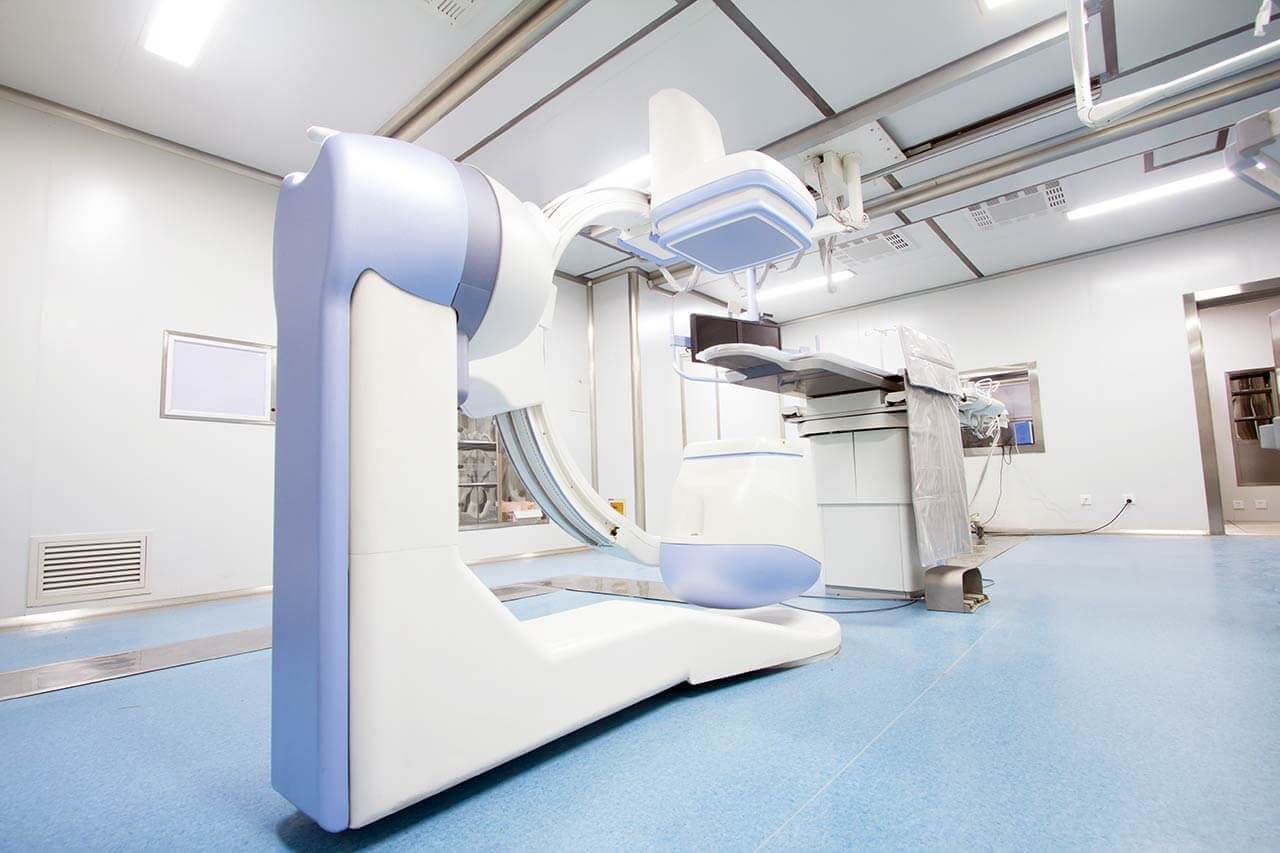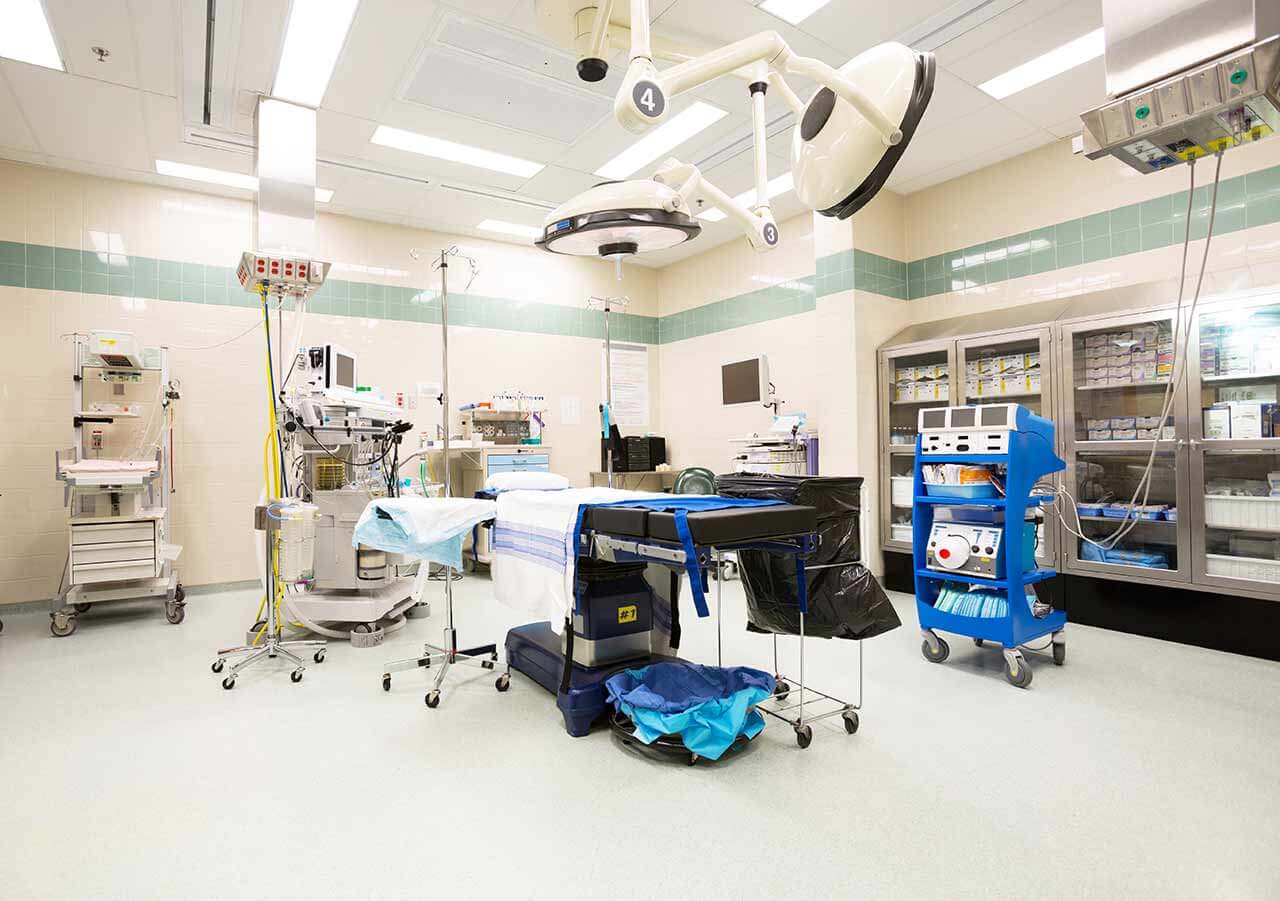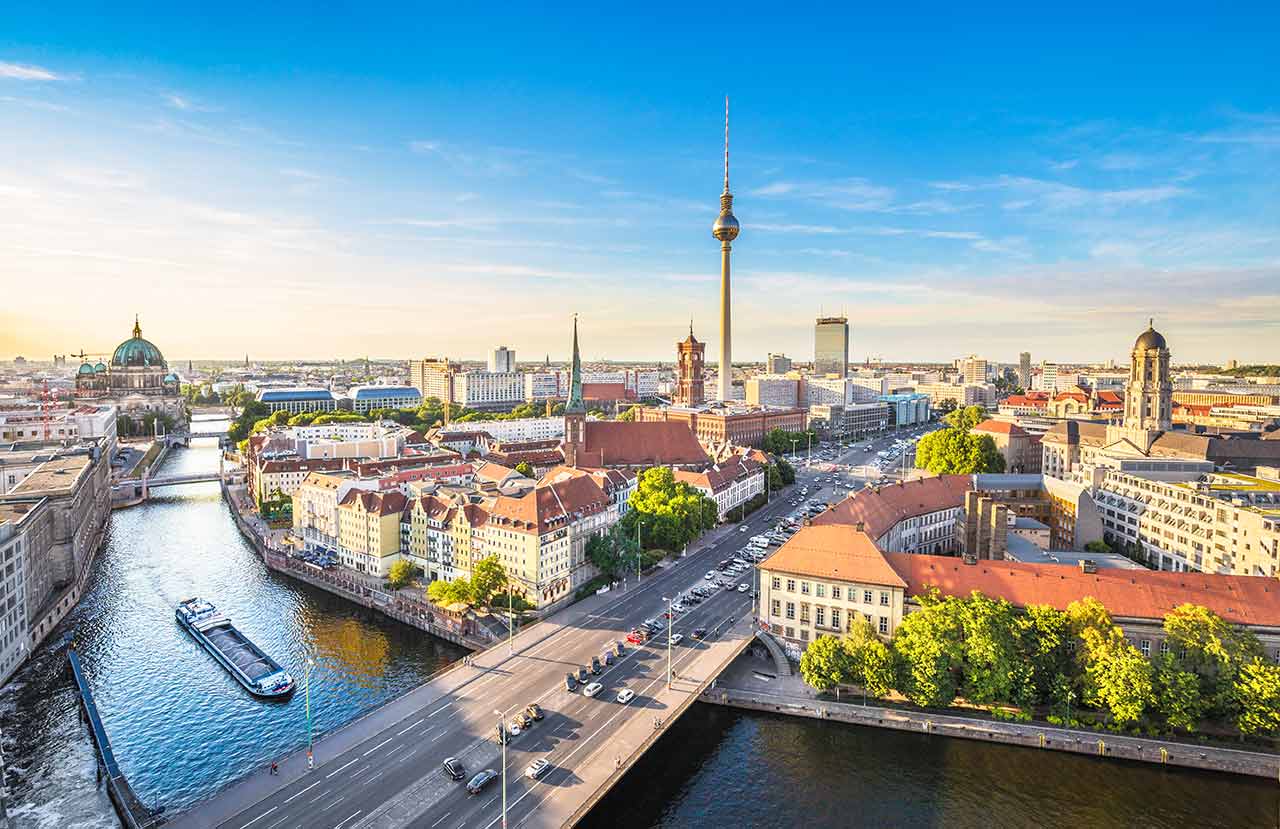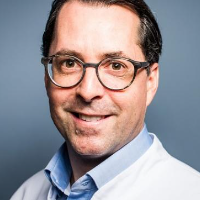
The program includes:
- Initial presentation in the clinic
- clinical history taking
- review of medical records
- physical examination
- laboratory tests:
- complete blood count
- biochemical blood analysis
- blood coagulation analysis (aPTT, PT, INR)
- inflammation indicators (CRP, ESR)
- metabolic analysis of blood
- cardiovascular disease risk markers
- kidney function test (creatinine, urea)
- color doppler echocardiography
- color doppler sonography of cerebral and peripheral vessels
- renal artery duplex scanning
- CT angiography (on indication 1300 €)
- MRI angiography (on indication 1900 €)
- nursing services
- consultation of related specialists
- consultation of the chief physician and all leading experts
- development of individual treatment plan
- written statement
Required documents
- Medical records
- Doppler ultrasonography / duplex scanning of the renal arteries (if available)
- MRI/CT scan of the abdomen and pelvis (if available)
- Renal angiogram (if available)
Service
You may also book:
 BookingHealth Price from:
BookingHealth Price from:
About the department
The Department of Vascular Surgery at the Charite University Hospital Berlin offers the full range of medical services in its area of specialization. The department excels in open surgery and endovascular interventions for pathologies of the arteries, veins, and lymphatic vessels. The central place in the department's clinical practice is given to the treatment of abdominal and thoracic aortic aneurysms, peripheral arterial occlusive disease of the lower extremities, carotid artery stenosis, deep vein thrombosis, and varicose veins. Whenever possible, the vascular surgeons of the medical facility give preference to minimally invasive techniques, which reduce blood loss, are less traumatic, and significantly shorten and simplify the postoperative recovery process. The department performs over 3,500 surgical procedures each year, most of which are technically complex. The operating rooms are equipped with advanced surgical equipment and high-precision systems for image guidance during endovascular interventions. The department's team of surgeons is guided by current clinical protocols and the standards of the German Society for Vascular Surgery (DGG). The Head Physician of the department is Prof. Dr. med. Andreas Greiner.
One of the main specialties of the medical facility is the surgical treatment of thoracic and abdominal aortic aneurysms. An aneurysm is a pathological enlargement of an arterial segment due to stretching and thinning of its walls. The diagnosis is made when the diameter of the aorta increases by 2 or more times. The most dangerous consequence of the pathology is the rupture of the aneurysm, which may cause a life-threatening internal bleeding. The specialists of the department mainly treat abdominal aortic aneurysms. The healthcare facility offers both minimally invasive removal of an abdominal aortic aneurysm with subsequent placement of a stent graft (a special prosthesis), and open surgery. Minimally invasive surgery is performed whenever possible, but open surgery also provides excellent results with a high safety profile. Thanks to many years of clinical experience in aneurysm treatment, operations with the placement of a custom-made stent graft for complex abdominal aortic aneurysms are successfully performed here. Prior to surgery, patients undergo a comprehensive diagnostic evaluation, the results of which are used to determine the optimal surgical treatment for each individual patient.
The department's team of vascular surgeons is highly qualified in the treatment of peripheral arterial disease, which causes thrombosis or narrowing of the arteries of the lower (sometimes upper) extremities due to the formation of atherosclerotic deposits on their walls. The most common symptom of peripheral arterial occlusive disease is intermittent claudication: pain and spasms in the leg muscles, usually when walking, but in the advanced stages also at rest. Several approaches have been developed to treat the pathology: drug therapy combined with specific sets of physical exercises, percutaneous transluminal angioplasty with or without stenting, and shunting with classical open techniques, which is the last treatment option used only in complex clinical cases. In some situations, the department's surgeons also perform hybrid procedures, which combine minimally invasive and open surgical techniques.
Patients with varicose veins often seek medical help from the department. Varicose veins are usually asymptomatic, but in the advanced stages of the pathology there is a feeling of pressure and pain in the legs. In addition, varicose veins can be a serious aesthetic problem. To confirm the diagnosis, a clinical examination, ultrasound, and laboratory tests are performed. In the early stages, varicose veins respond well to treatment with compression stockings. As the condition progresses, surgery is often required. The department's specialists offer several surgical treatment options: thermal ablation, mechanochemical endovenous ablation, or classic surgery. Mechanochemical endovenous ablation is one of the most modern and minimally traumatic methods of endovascular treatment of varicose veins. The essence of the procedure is a mechanical effect on the inner wall of the affected vein with a simultaneous administration of a sclerosing agent.
The department's medical services include the following:
- Surgical treatment of thoracic aortic aneurysm using thoracic endovascular aortic repair (TEVAR)
- Surgical treatment of abdominal aortic aneurysm using endovascular aneurysm repair (EVAR)
- Surgical treatment of thoracoabdominal aortic aneurysm using fenestrated endovascular aortic repair (FEVAR) and branched endovascular aneurysm repair (BEVAR)
- Surgical treatment of aortic pathologies using conventional open surgical techniques
- Surgical treatment of carotid artery stenosis using balloon angioplasty followed by stenting and conventional surgical techniques
- Surgical treatment of intermittent claudication using open, endovascular, and hybrid surgical techniques
- Surgical treatment of varicose veins using open and endovascular techniques
- Endovascular treatment of renal artery stenosis
- Formation of dialysis access using open and endovascular surgical techniques
- Other surgical options
Curriculum vitae
Higher Education
- 1997 Medical studies and thesis defense, Medical University of Innsbruck, Austria.
Professional Career
- 2005 Specialist in the Department of General Surgery, University Hospital Innsbruck.
- 2007 Specialist in the Department of Vascular Surgery, University Hospital Innsbruck.
- 2008 - 2014 Managing Senior Physician in the Department of Vascular Surgery, University Hospital Innsbruck; Extraordinary Professorship, Rhenish-Westphalian Technical University Aachen.
- Since 2015 Professorship, Department of Vascular Surgery, Faculty of Medicine, Free University of Berlin and Humboldt University of Berlin; Head Physician, Department of Vascular Surgery, Charite University Hospital Berlin.
Clinical Interests
- Minimally invasive treatment of thoracic aortic aneurysm using thoracic endovascular aortic repair (TEVAR).
- Minimally invasive treatment of abdominal aortic aneurysm using endovascular aneurysm repair (EVAR).
- Open aortic surgery.
- Treatment of intermittent claudication using shunting and percutaneous transluminal angioplasty followed by stenting.
- Endovascular treatment of renal and abdominal artery stenosis.
- Endovascular and open procedures for carotid artery stenosis.
- Surgical procedures for the formation of dialysis access.
- Surgical and non-surgical treatment of varicose veins: aesthetic procedures, sclerotherapy, and endovenous laser ablation.
Memberships in Professional Societies and Organizations
- Fellow of the European Board of Vascular Surgery (FEBVS).
Photo of the doctor: (c) Charité – Universitätsmedizin Berlin
About hospital
According to the reputable Focus magazine, the Charite University Hospital Berlin ranks 1st among the best healthcare facilities in Germany!
The hospital is one of the largest and leading university medical complexes in Europe, and also consistently holds leading positions in the international medical arena. The Charite operates on the basis of the Faculty of Medicine of the Free University of Berlin and the Humboldt University of Berlin. Patients are offered modern diagnostics and treatment with the very latest methods, many of which were developed by professors and scientists of the medical complex. More than half of all German Nobel Prize winners in medicine and physiology, such as Emil von Behring, Robert Koch, and Paul Ehrlich, studied and worked at the Charite University Hospital Berlin. The medical complex includes more than 100 specialized departments and institutes, which helps to ensure that patients receive care in all existing medical specialties. The hospital has exceptional experience in treating complex clinical cases.
Each year, the hospital treats more than 137,800 inpatients and more than 787,700 outpatients. The hospital has a bed capacity of 3,293 beds. A huge medical team consisting of 5,670 scientists and doctors and more than 6,000 nurses work for the benefit of the patients. The main task of all specialists of the medical facility is to restore the patient's health or save his life in critical cases. The hospital has a friendly atmosphere where every patient feels care, respect and empathy.
The Charite University Hospital Berlin is generously funded by the German government, which is why it offers patients the latest generation of excellent equipment and comfortable infrastructure. The Charite medical complex is equipped with da Vinci robotic surgery systems, laser technologies, equipment for endovascular catheter-based interventions, neuronavigation devices, intraoperative monitoring systems, equipment for proton therapy available only in the most advanced medical centers in the world, and many other technologies. All these resources, combined with the experience and professional skills of the hospital's doctors, are the key to providing the most effective and safe treatment in accordance with the highest international medical standards.
The hospital is recognized with a huge number of quality certificates, including DIN EN ISO 9001:2015, certificates from the German Cancer Society (DKG), the German Society for General and Visceral Surgery (DGAV), the German Society for Thoracic Surgery (DGT), the German Hernia Society (DHG), and the ERAS Society.
The Charite University Hospital Berlin is a benchmark in the European healthcare system. Patients therefore receive impeccable medical service, quality care, and personalized service that puts the patient and their individual needs first.
Photo: (с) depositphotos
Accommodation in hospital
Patients rooms
The patients of the Charite University Hospital Berlin live in comfortable rooms made of modern design. Each room is equipped with an ensuite bathroom with a toilet and a shower. The standard room furnishing includes an automatically adjustable bed, a bedside table, a wardrobe for storing clothes, a table and chairs for receiving visitors, and a TV. If desired, Wi-Fi access can be provided. The hospital also offers enhanced-comfort rooms.
Meals and Menus
The patient and his accompanying person have a daily choice of three menus. If for any reason, you do not like the food, you will be offered an individual menu. Please inform the medical staff about your dietary preferences before the treatment.
Further details
Standard rooms include:
Religion
Religious services are available upon request.
Accompanying person
During the inpatient program, an accompanying person may stay with you in a patient room or at the hotel of your choice.
Hotel
During the outpatient program, you can live at a hotel of your choice. Managers will help you to choose the most suitable options.
The hospital offers a full range of laboratory tests (general, hormonal, tests for infections, antibodies, tumor markers, etc.), genetic tests, various modifications of ultrasound scans, CT scans, MRI and PET / CT, angiography, myelography, biopsy and other examinations. Treatment with medications, endoscopic and robotic operations, stereotaxic interventions is carried out here, modern types of radiation therapy are also used. The hospital offers patients all the necessary therapeutic techniques.
- Proton therapy
- CyberKnife treatment
- Hyperthermic intraperitoneal chemotherapy (HIPEC)
- PSMA therapy with Lutetium-177
- Joint replacement in adults and children
These are oncological diseases, benign neoplasms of the brain and spinal cord, heart valve defects, diabetes mellitus and its complications, joint diseases and other pathologies.
- Neurosurgery
- Oncology
- Plastic and reconstructive surgery
- Interventional radiology
- Proton therapy (Proton Therapy Center BerlinProtonen)
The medical team includes more than 4,225 highly qualified scientists and doctors.
